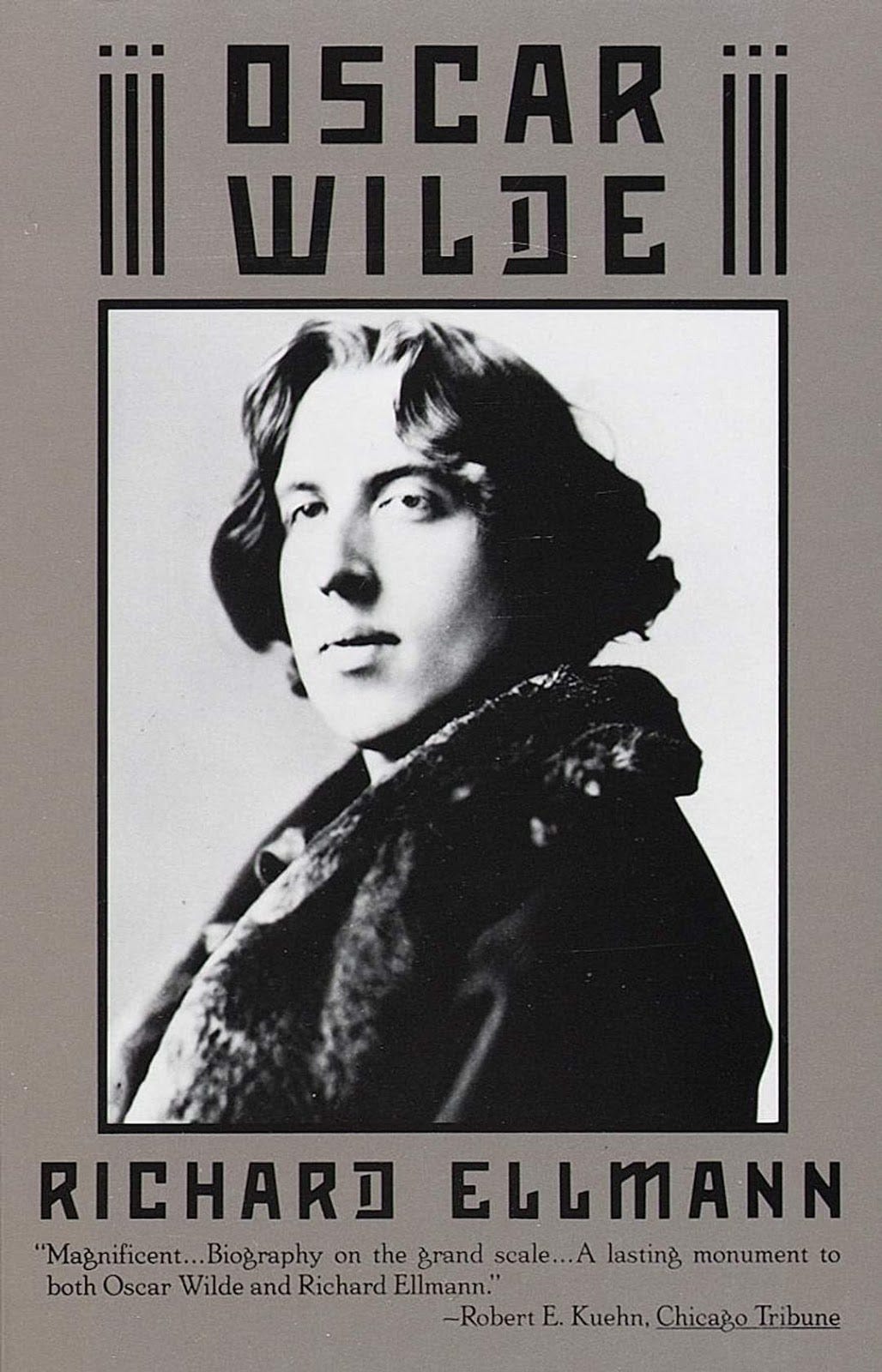Ellmann's Wilde is a fresh, fast-moving book filled with the scholar's contagious elan and excitement for its subject. It's hard to believe such a perfect book is thirty-five years old.
Wilde's critical writings are still unsurpassed in pointed energy and dialectical fervor. He is always having a good time on the page, and his zest and self-confidence are easily translated to the reader.
....‘The Decorative Arts’ was more closely tied to ‘The English Renaissance,’ drawing heavily upon Ruskin and Morris for its examples. Wilde described the recent rise of handicrafts in England, and the advantage of having work made by delighted craftsmen rather than by unfeeling machines. He moved fluently from point to point, not worrying much about organization, trusting to what quickly became dependable patter. Modern dress was ignoble, as could be seen in sculptures: ‘To see the statues of our departed statesmen in marble frock coats and bronze, double-breasted waistcoats adds a new horror to death.’ There must be schools of art, and these must be in more immediate relation with trade and manufacturing than now. Art should portray the men who cover the world with a network of iron and the sea with ships. Beside each art school should be a museum, like the South Kensington Museum in London, where artists and craftsmen could come to see excellent work in their fields. Bad art is worse than no art: ‘I have seen [in the Philadelphia School of Design] young ladies painting moonlights upon dinner plates and sunsets on soup plates.’ The subjects for art need not be searched far afield: ‘The most graceful thing I ever beheld was a miner in a Colorado silver mine driving a new shaft with a hammer; at any moment he might have been transformed into marble or bronze and become noble in art forever.’ Modern jewelry is vulgar because the individual craftsman is ignored; modern wallpaper is so bad that a boy brought up under its influence could allege it as a justification for turning to a life of crime. Heavy crockery cups should be abjured in favor of the tiny porcelain ones from which he had seen Chinese navvies drinking. Finally, education must be changed: children should not be drilled in ‘that calendar of infamy, European history,’ but should learn in a workshop how art might offer a new history of the world, with a promise of the brotherhood of man, of peace rather than war, of praise of God’s handicraftsmanship, of new imagination and new beauty.
Oscar Wilde by Richard Ellmann (1988)



